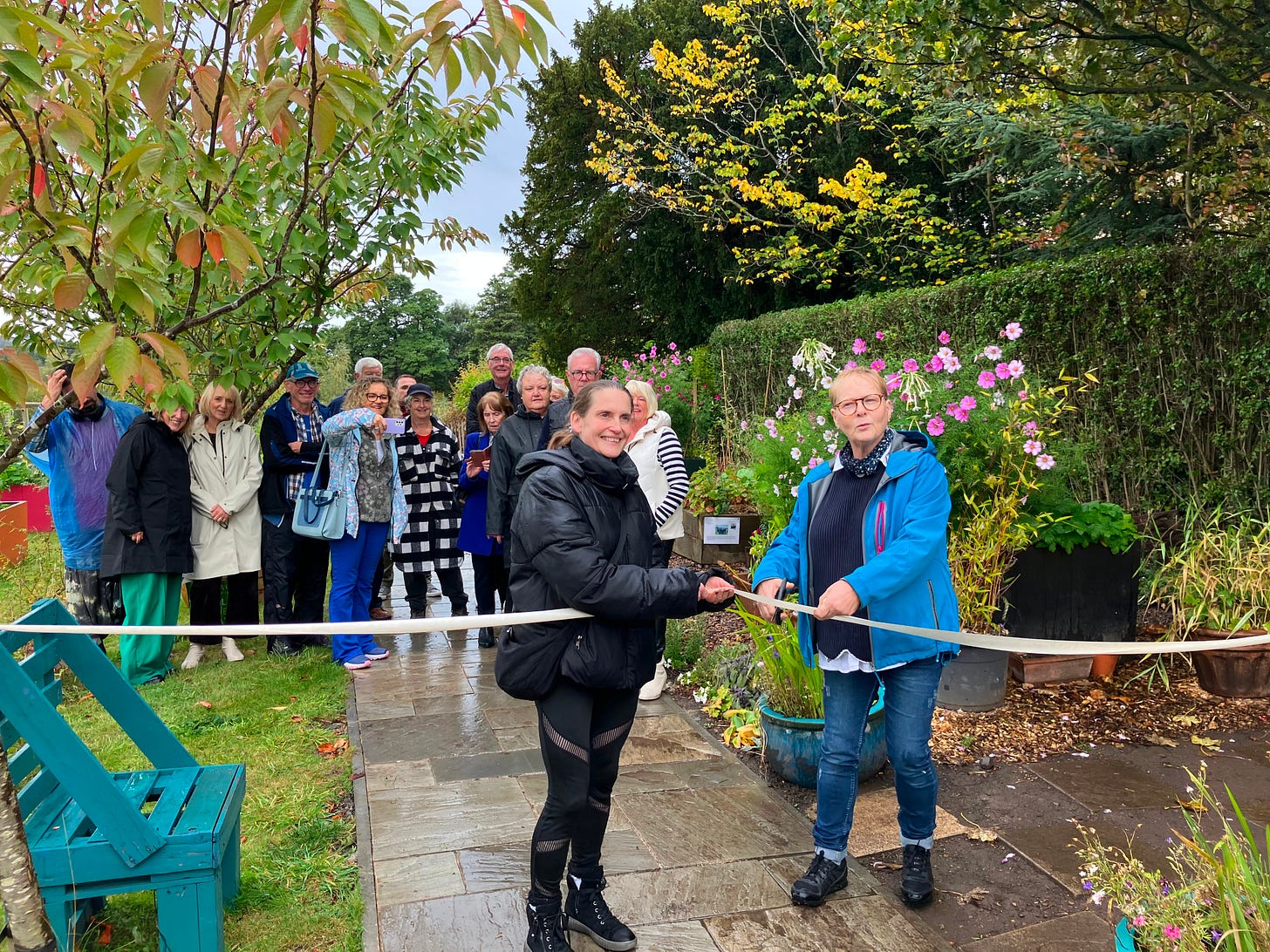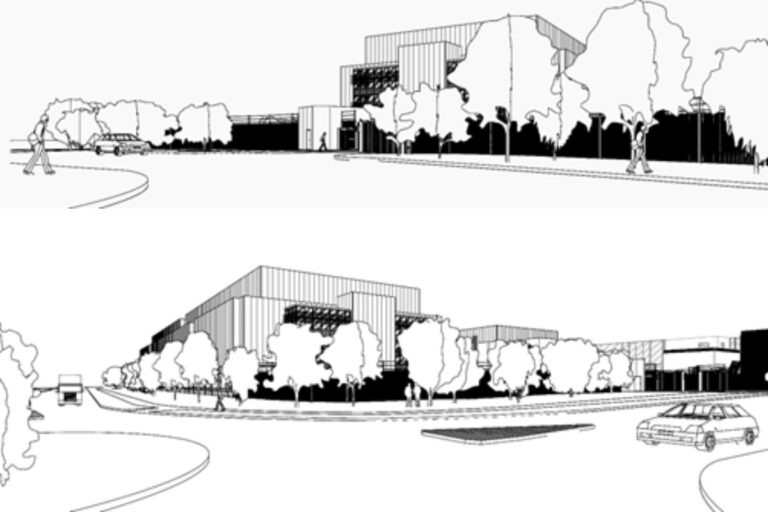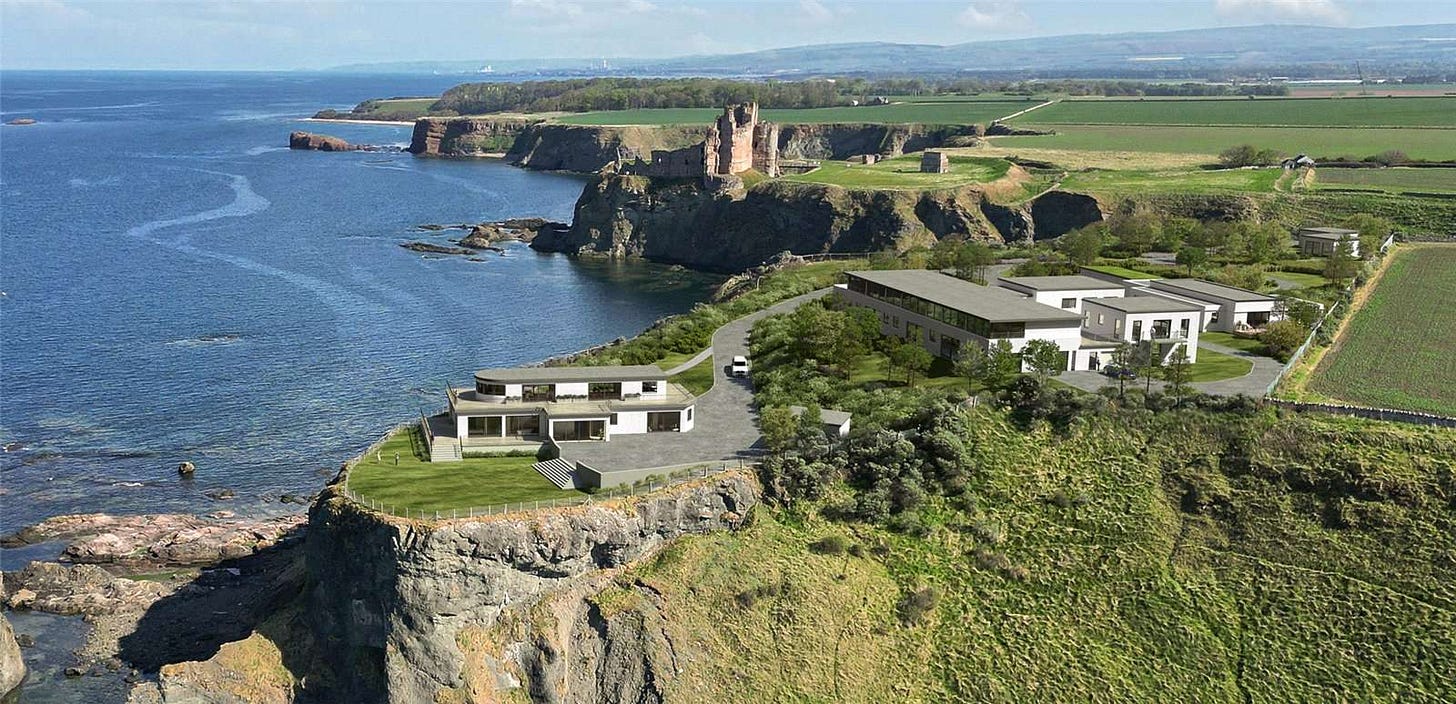Huge city data centres told they don't need environmental assessments
Plus: Video games legend vows to root out 'saboteurs'; and Frankenstein hits the big screens
Council says no need for vast ‘green’ data centres to undergo environmental assessments
Two huge data centres planned for the Capital have been told they don’t need to undergo environmental assessments despite concerns about their ‘green’ impact.
Edinburgh is expected to be a data centre hotspot after the UK identified the need to rapidly expand its capacity in order to power its growing AI capability. Scotland has been identified as an AI Growth Zone, with Edinburgh at the forefront of these ambitions due to its existing expertise in AI and big data.
Plans for two of the first new vast data centres have been lodged with the city council. One of the so-called ‘green data centres’ is proposed for the site of the former Royal Bank of Scotland headquarters at Drummond House in Edinburgh Park, the other on greenbelt land near Currie, close to the National Robotarium and Heriot Watt University campus.
While the development of more data centres has been deemed of national importance, their environmental impact remains the subject of controversy. The amount of water needed to keep them cool and their high carbon emissions are particular concerns.
The city council has yet to grant permission for either centre, but it has ruled neither require environmental assessments, after deciding it would not have a “significant environmental impact”.
Just how big are they? The data centre combined could use the power equivalent of more than one million UK homes. The Edinburgh Park centre, proposed by Shelborn Asset Management, could use 213 megawatts at peak times, enough to supply electricity to around 530,000 homes. The Aptura centre near Currie would use slightly less, at up to 200 mw (the equivalent of 500,000 homes).
How ‘thirsty’ are data centres? The 16 existing data centres powering AI in Scotland already use enough tap water to fill 13.5 million litres a year, the BBC reported last week. That’s the equivalent of around 260 people. The big concern though is that this could rise exponentially, having already quadrupled over the last four years.
What about CO2 emissions? Shelborn estimates the Edinburgh Park centre could generate just over 200,000 tonnes of C02 emissions a year, which the i paper reports is roughly the same as Edinburgh Airport.
Why Edinburgh? The city is seen as crucial to the UK’s ability to remain at the forefront of AI and big data development, thanks to the expertise at its universities and the innovative research companies they support. The UK’s existing data centres are based mainly around London.
‘Game-changing’ investment: Aptura estimates its data centre campus would involve a £1.4 billion investment, an amount described as ‘game-changing’ for the economy. That includes £125 million of construction spending retained in the local supply chain; 1,455 construction jobs, including 245 jobs in Edinburgh; 1,183 permanent jobs once operational, including 537 in Edinburgh; and £205 million added to the local economy every year.
What does Shelborn say? Shelborn is promoting the development as a “green data centre” and says agreements can be put in place “to guarantee 100% green power generated off site”. It says it will meet all the Scottish Government’s Green Data Centre criteria , designed to minimise lifecycle greenhouse gas emissions. The criteria don’t appear to include specific targets on heat reuse or power-use efficiency.
The council says: A statement from the city council said: “Whilst we’re unable to comment on live planning applications, environmental impacts are always carefully considered as part of the decision-making process.”
‘Transparency’: Professor Ana Basiri, director of Glasgow University’s Centre for Data Science and AI, has raised concern about the lack of data shared by big tech companies on their environmental impact. “We can’t really measure this because, of course, there is not necessarily a big mandate from the government to report on the detail of the energy or water use of data centres or other big tech companies that exist and that’s a massive challenge,” she said.
YOUR EDINBURGH BRIEFING
A HOUSE THROUGH TIME: Professor David Olusonga will explore the human stories behind a 260-year-old home on Calton Hill for the latest series of A House through Time. His popular programme retells history through the lives of ordinary people living in a single house, rather like a TV version of Diarmid Mogg’s brilliant Tenement Town blog. “It sits high on Calton Hill with a view over the city and although built as part of Edinburgh’s rapid 18th Century expansion it predates the New Town’s creation. It’s a house inhabited by the aspirational rather than the wealthy, and in typical Edinburgh style, it was built in stages and housed multiple families,” the BBC announcement says.
GAMES LEGEND’S ‘SABOTEURS’: One of the celebrated creators of the best-selling video game Grand Theft Auto is experiencing a nightmare at his new studio in Edinburgh, the BBC reports. The latest release by Leslie Benzies’ Build A Rocket Boy studio, sci-fi adventure MindsEye, has been described as a total disaster. Critics say it is full of bugs and “the worst game of 2025”. In a staff video call, Benzies has blamed “internal and external” forces working to scupper the MindsEye launch and vowed to root out “saboteurs” within the company.
YOUR OWN RADAR STATION: It’s yours for offers over £2.5m. The former radar station at Gin Head, near North Berwick, is up for sale again. Originally used to test naval radars during the Second World War, the property which features three main buildings could now be converted into seven homes. The views of the Bass Rock and neighbouring Tantallon Castle aren’t too shabby.
EAST LOTHIAN ‘TOURIST TAX’: East Lothian is considering following Edinburgh, Glasgow and Aberdeen by introducing a Visitor Levy on overnight stays in the county. Six councils have voted in recent months against taking forward plans for a so-called ‘tourist tax’, including Orkney, Shetland and Argyll & Bute, amid concerns it may deter visitors and damage the local economy. East Lothian Council is asking for public views on the idea.
BOOKED UP: A former book bindery in the heart of the New Town is to be converted into an 84-bed “design-led” hotel. The hotel will be run by Code Concepts which operates whisky and gin tasting attraction The Lost Close, on Old Fishmarket Close, off the Royal Mile, and The Loft hostel off Rose Street. Work on Stewart House in Thistle Street North West Lane is due to start this week with opening expected in 2027.
BANKING TO HOTEL: The vacant former Lloyds Banking Group offices at Edinburgh Park are to be converted into a 113-room aparthotel. Plans for the four-storey building near the Edinburgh Park tram stop, submitted by Mr W Gardner-Young, have been approved by the city council.
AIRPORT HOMES: The developers behind plans to build homes for up to 3,000 people next to Edinburgh Airport are asking for more time to strike a legal agreement with the council. Elements Edinburgh intends to build a “20-minute neighbourhood”, with on-site services for its residents, as well as a 1,020-bed hotel. Planning permission was granted last year, but the legal agreement covering developer contributions for public amenities is taking longer than normal due to the size of the project.
CHURCH CHANGE: The next moderator of the Church of Scotland has said the Kirk needs to change to be able to meet the challenges of the modern world. The Reverend Gordon Kennedy, 62, minister of Craiglockhart Parish Church, takes up his post next year. “We need to change but the challenge is we’re not always sure about how we need to change and in what direction we need to change,” he said.
Pic of the week

THE BUSINESS
Edinburgh firm creating global growth through AI
An Edinburgh-based AI consultancy which has an aim to “build the three-day working week” through helping businesses harness the full potential of Artificial Intelligence is continuing its global expansion.
Founded in Edinburgh and London in 2023, Tomoro now has offices in Sydney, Melbourne and Singapore and is actively recruiting. A previously announced £4m investment saw the firm create 20 new, highly-paid jobs in Scotland’s Capital.
The company delivers generative AI and autonomous agent solutions for organisations including Fidelity International, Supercell and Virgin Atlantic.
“We’re all about working on the most ambitious AI projects in the world and hiring the top AI talent. Our Scottish base has been instrumental to that, providing us with an unbelievable base of talent and production solutions to expand across Asia Pacific,” said Ed Broussard, Managing Director and Co-Founder of Tomoro.
FUNDING WIN: Launchpad – which opened its R&D Centre in Edinburgh last year – has just completed its first major venture capital funding round, raising £8.2 million from funders including the Scottish National Investment Bank. The firm aims to help companies improve competitiveness through its proprietary technology utilising AI to improve automation outcomes. The funding will be used to accelerate the development of the technology.
WINNING GOLD: The Sheraton Grand Hotel & Spa has become one of the first in Scotland to be awarded Gold Certification from The PLEDGE on Food Waste, which is a globally recognised accreditation to assess restaurants and hotels against rigorous food waste reduction criteria. In the process the hotel saw a 13% reduction in food waste per cover, saving on food costs and cutting food expenditure.
THAT’S ENTERTAINMENT
DEL TORO TIME: Shot on location in Edinburgh by Oscar-winning director Guillermo del Toro, the reviewers are saying you should catch Frankenstein on the big screen to enjoy its sumptuous cinematography. You can see it at Edinburgh Filmhouse, the Cameo and other cinemas from Friday.
TELL US A STORY: Enjoy a feast of world-class storytelling, music and workshops at venues across Edinburgh and Scotland, at the Scottish International Storytelling Festival, from Wednesday until Saturday, 1 November. This year’s festival explores Scotland’s northern identity, sharing tales, songs and myths from the world’s northern arc, from Finland to Iceland, Germany to Norway.
FRIGHT NIGHTS: Featuring theatre, music, comedy and cabaret, Edinburgh Horror Festival returns to venues across the city from Thursday until Hallowe’en.
QUICK BITES
DESIGN PERFECTION: Edinburgh’s Michelin-starred Lyla restaurant on Royal Terrace has received yet another award. Stuart Ralston’s flagship fine-dining experience has been named as one of the best in the UK for “design-led” dining by the prestigious Good Food Guide, praised for both its food service and “sumptuous” décor.
OPEN PANTRY: The highly popular Lannan Bakery in Stockbridge has announced the opening of its second location in the Capital –next door to the first! The Lannan Pantry on Hamilton Place is a one-stop shop for seasonal produce which open from 28 October, and will from next month will also operate as the collection point for bakery pre-orders, offering guests the opportunity to purchase viennoiserie and a limited selection of cakes ahead of time.





Good to see you commenting on these data centres. It's going to be an environmental and cultural disaster.